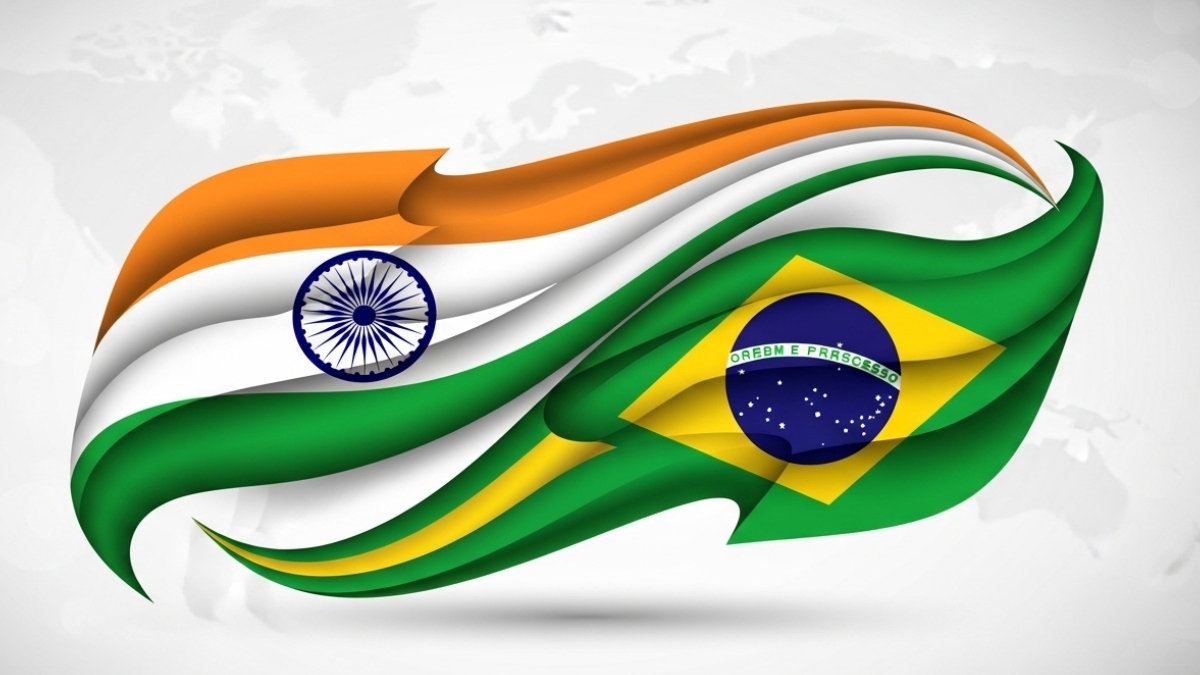OPINION | Brazil and India’s quest for Sovereign Technology Capability
 Image used for representation
Image used for representation
India was singled out for 50% tariffs along with Brazil. If ever there was a moment for the two to come together, it is now. Geographically separated, but much aligned geopolitically and now economically, the two countries have begun to find proximity of national interest. President Luiz Inácio Lula da Silva
and Prime Minister Modi have had separate telephonic conversations with US President Trump to navigate their differences with a forcefully assertive US on the global stage. Yet, recent events have underscored the need for both nations to seek a level of technological independence to protect national interests. PM Modi visited Brazil in July 2025, and October saw back-to-back visits to India by Celso Amorim, Chief Advisor to President Lula during the sixth India-Brazil Strategic Dialogue in New Delhi; and Mr Geraldo Alckmin, Vice President of Brazil and Minister of Development, Industry, Trade and Services.
Challenges
Both countries face disruptive geopolitical pressure and weaponisation of geoeconomics, highlighting technological sovereignty as a major driver in the balance of power; just as nuclear technology defined the cold war rivalry, as Industry 4.0 shifted manufacturing from the West to the East with the former focussing on innovation as the leading edge for economic power; the digital multiverse has shaped the current struggle for geopolitical power. What is different this time is the faster pace of change that digital technology has ushered in, accelerating the difference between the have and have-nots.
Secondly, multi-domain contestation emphasises the use of all tools available to the state. While the Trump Administration imposes 50% tariffs on India justifying half of it on India’s purchase of Russian oil, and then on purchase of Russian armaments (ongoing since the late 1960s, and indeed dropping since the last decade), the US finds it expedient to do business with China or Russia to buy rare-earth elements, fertilisers and reportedly attempting to bring Exxon Mobile to re-enter the Sakhalin oil blocks. There are media bytes naming scions of the US elite families getting into cypto deals with Pakistan or underwriting global tariff refunds! US tariffs have historically proved to be marginal tactical successes in the past but almost always a strategic failure. Take the case of the McKinley Act of 1890 which sought to economically beat down Canada into acceding to be a US state (President Trump possible borrowed this idea!), or the Smoot Hawley Act which sought to increase employment statistics in the US but added to the Great Depression, or the 100% tariffs on Japanese electronics in 1980 – each ended in catastrophic failures for the US. Each time the targeted state entities resorted to adapting their trade profiles with newer partners. Adaption by targeted nations was the key.
The third risk is lies in disrupted digital supply chains such as reliance on single vendors from the US, and off shore cloud storages which may allow access to data used for AI training or customised targeting in business or geopolitical narrative building. This would raise the risk of systemic failures. This is exacerbated by the fragility of under-sea connectivity and chip manufacturing ecosystems. Fourthly, semi-conductor technology, AI platforms and clean energy technology at the new frontiers of innovation exhibit new risk surfaces. Even though run by private companies with pure business motives, their insidious control by the state is apparent to the discerning eye.
Finally, tech-nationalism is leading ethnic and social polarisation by destabilising operational and governance environments.
Mitigation Strategies
Brazil and India need to focus on common adaptation strategies based on agile policy making with alertness, anticipation and vigilance. Reactive policy decisions will barely keep pace with disruption.
Secondly, to build a close bond of trust, there is a need to identify inter-dependencies between the two nations; and where not naturally available some of these inter-dependencies may need to be created. This would involve detailed interaction at the functional level. Third, commonality in regulations and standards must be built in. While multi-lateral fora offer fertile grounds to meet, bilateral and trilateral formats will yield faster results.
The gains from these could then be shared with the Global South, with a benign agenda. It is important to acknowledge that multilateral fora like the UN, BRICS, or even RCEP must not lead onto replacing one hegemon by another if their benign charters are to be upheld.
Brazil and India need to cooperate on multiple fronts including
• Establishing an Indo-Brazil Technology Framework, which outlines a policy roadmap in emerging technologies for both countries. Harmonising tech standards and creating joint regulatory and funding mechanisms would help.
• Setting up joint R&D hubs in select domains.
• Creating a secure financial infrastructure enabling bilateral trade.
• Sharing intelligence and incident response mechanisms in the cyber domain to protect critical information infrastructure. Later this can be extended to AI and quantum technologies as well.
• Training and capacity building with joint skill development programs and certification.
• Building defence and strategic sector partnerships in communications and AI driven defence systems. This includes a common approach to responsible AI in military policies globally, but also scenario-based exercises.
Disruption brings in uncertainty, but it also provides great opportunity. This window of opportunity is narrow, and this is the moment when political will in India and Brazil can drive the two nations to their deserved level in the global balance of power.
(Maj Gen (Dr) Pawan Anand, AVSM is a veteran, founding Director at the Centre for Emerging Technologies for Atmanirbhar Bharat at the USI of India and a mentor at the National Defence College. He recently spoke at the Congress in Brazil’s Parliament, Camara dos Deputados.)
(The opinions expressed in this article are those of the author and do not purport to reflect the opinions or views of THE WEEK.)
Defence